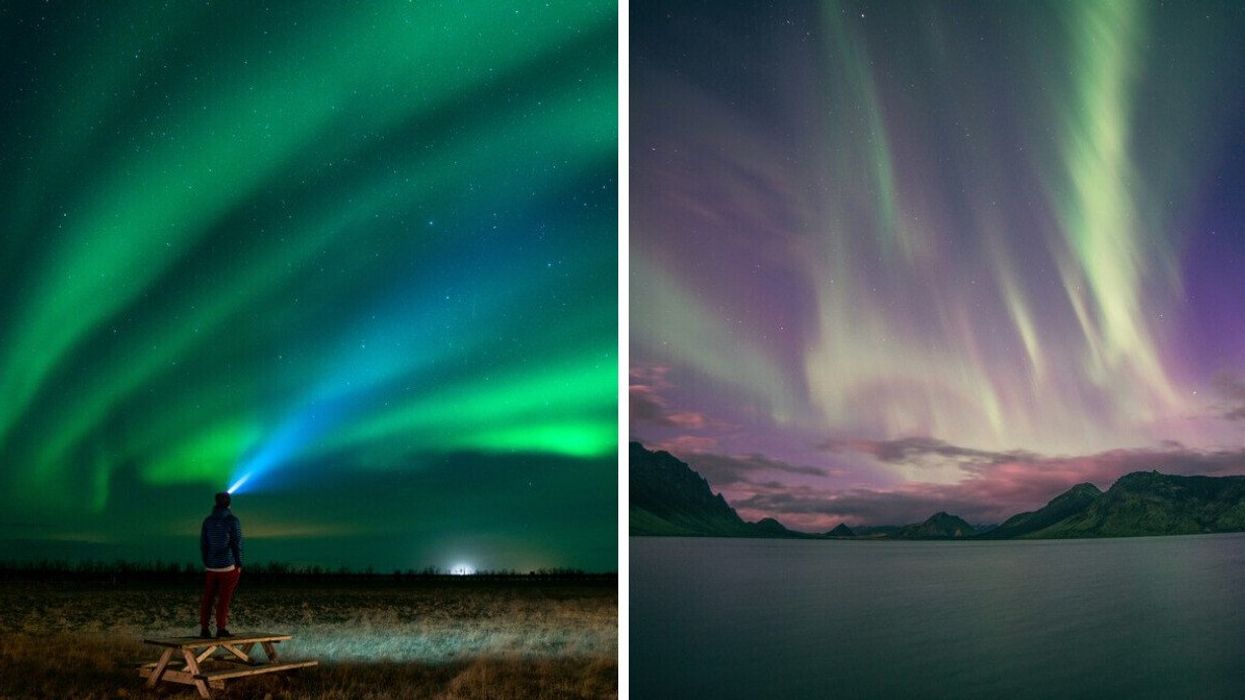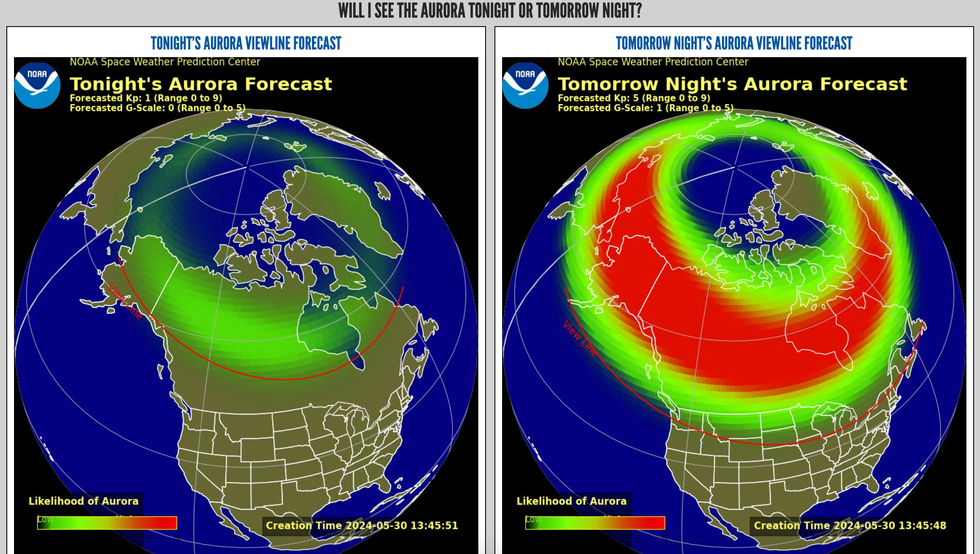The northern lights could shine over Canada this weekend and may dip down to southern Ontario
Officials have issued a geomagnetic storm watch ahead of the weekend.✨

A person looks at the northern lights. Right: The aurora borealis.
If you haven't gotten your chance to see the northern lights in Canada, you'll want to keep your eyes on the skies this week.
The northern lights could be visible across the country this weekend as moderate solar storms are predicted to occur, sending the aurora far south when they do, even as far as parts of southern Ontario.
The U.S. National Oceanic and Atmospheric Administration's Space Weather Prediction Center has issued a geomagnetic storm watch for late Friday, May 31, to early Saturday, June 1, with G2 solar storm conditions possible during this time.
According to the SWPC, a coronal mass ejection (a large expulsion of plasma and magnetic field from the sun's corona) associated with a recent solar flare is likely to enhance the Earth's magnetic field.
"When they arrive at Earth, a geomagnetic storm can result," says the SWPC.
According to Space.com, the sunspot responsible for this solar activity is the same one behind the incredible G5 geomagnetic storm that led to widespread auroras across the country in early May.
At the time, the northern lights were visible extremely far south, with residents in the Greater Toronto Area able to see brilliant auroras.
While a G2 storm isn't going to be the same as what the country experienced earlier this month, it could still lead to the northern lights being visible in parts of southern Ontario.
According to the NOAA's Aurora Dashboard, which provides a prediction of the aurora's visibility over the coming nights, the northern lights could be visible as far south as some U.S. states.
The colours on the map represent the chance of seeing the aurora, with red indicating the highest probability, followed by green, with clear areas of the map having the lowest chance.

According to the forecast, Canada could see some active auroras on the night of May 31, with locations as far south as Vancouver and parts of Ontario having a decent chance of catching the northern lights.
Parts of southern Ontario are within the viewline (which indicates the southernmost locations from which you may see the aurora on the northern horizon), but chances of northern lights here will be on the low side.
For the best chance of seeing the northern lights, you'll need the right conditions. The NOAA says the best aurora viewing is usually within an hour or two of midnight (between 10 p.m. and 2 a.m. local time).
You'll want to be somewhere dark and away from city light pollution. Cloud cover may also affect whether or not you're able to see the northern lights in your region, so check the forecast for your area.
Good luck!
This article's cover image was used for illustrative purposes only.